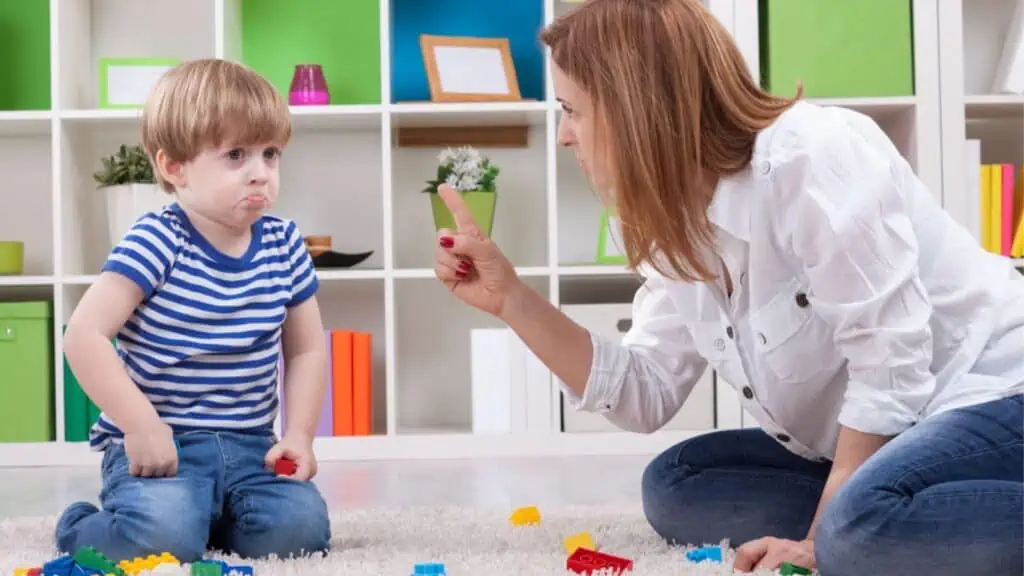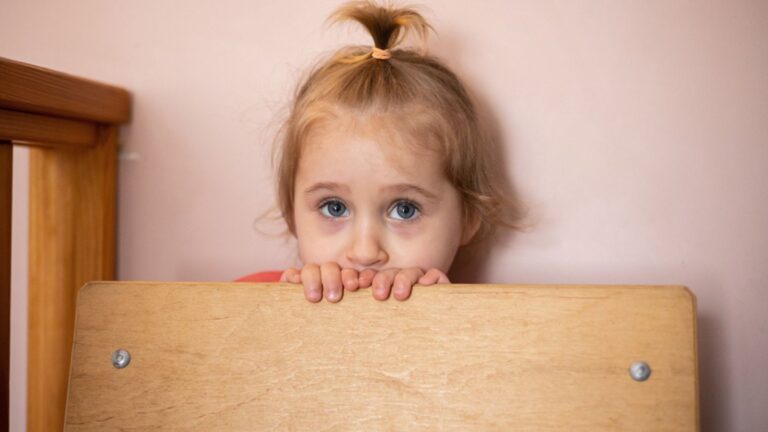17 Reasons Why Pushing Kids for Good Grades May Backfire
This post may contain affiliate links. As an Amazon Associate, I earn from qualifying purchases.
All parents aspire to see their children succeed, with academic achievement often overshadowing other life accomplishments. Parents may pressure their kids to get good grades because that’s what they experience from their own expectations. Others may want to push their kids to have a better life than they did (via better education opportunities as they get older).
While good grades are commendable, the strain placed on children to excel academically and maintain a top position in their class can be overwhelming. From parents, teachers, and society- kids can feel like constant pressure to be perfect.
If you’ve been pushing your kids to enhance their academic performance, here are a few reasons to contemplate easing your foot off the grades pedal.
1. Pressure is Counter-productive

A parent may think the pressure on a child to do better is helpful, but this can be interpreted as expectations they can’t meet.
This can make them feel inadequate and work against them in their academics. Kids who feel pressured to do better in their academics tend to fail more than those who feel their parents want them to be happy. Operating out of a place of fear and stress is not conducive to learning and success.
2. It Leads to Burnout

Constant academic pressure may contribute to fatigue and burnout. The children will eventually lose interest in learning altogether due to the relentless pursuit of high grades, especially if the grades expected of them are unattainable.
High levels of stress and burnout can also lead to physical and mental health issues, causing long-term damage to a child’s overall well-being.
3. Strained Parent-Child Relationships

Excessive pressure from parents can strain the parent-child relationship, leading to communication breakdowns and eroding trust. They may refuse to speak to you or only divulge the bare minimum (leading to harmful secrets as they get older related to sneaking out, substance abuse, etc.).
A child will feel that all the parent cares about is their academics, not their overall well-being. After a while, they might slowly shut down and choose not to share their emotions with pressuring parents.
4. It May Lower Their Self-Esteem

Kids who feel pressured by their parents to pass their exams above everything else might have low self-esteem, as they might feel they’re not doing their best to impress their parents.
If the tone used to insist on good grades is derogatory and demeaning, the child feels inadequate. When they attach their academic performance to their own feeling of self-worth, this is a recipe for a mental health disaster.
5. Kids Rely on External Validations

Good grades lead to much praise for one kid, while the child who doesn’t do as well gets more scolding than praise. Both of these children may eventually grow into adults who strive for external validation to feel good about themselves.
This can be detrimental as they may ignore their own personal growth and happiness, relying solely on achievements to feel successful. By easing the pressure for top grades, parents can encourage a more balanced approach to success and help their children develop self-worth that extends beyond academic performance.
6. It Shows a Lack of Appreciation

Children should be encouraged to do well in school, but their efforts should also be acknowledged and rewarded. After all, if they put effort into school and don’t see results, additional pressure will just overwhelm them.
Pushing for academic excellence without recognizing the efforts already being made makes the child doubt their own potential and think they can never attain the levels of excellence you expect from them. All children will have different learning capacities and strengths, and considering this based on effort is important.
7. It Emphasizes Winning

Winning is excellent and even feels great, but it’s not everything. The child needs to know that people sometimes fail; the greatest lesson is how they pick themselves up after the failure.
There’s a lot of pressure for performance and “being the best you can be,” while this is not bad, it can affect an individual’s mental and emotional well-being- especially if they don’t learn to how to cope with losing.
8. It Focuses on their Failures

It may look like it’s helping the child do better, but pressure for academic excellence focuses more on the child’s imperfections than on what they’re actually doing well in.
It may lead to incessant reproval and more failure. Focusing on what they are doing right and excelling at can help them feel confident in their ability and indirectly boost their grades (and quality of life).
9. It’s Stressful for Kids

Kids experience emotional and mental stress when they perceive that they’re expected to live up to a certain academic achievement. This is especially worse if they feel they aren’t able to meet those expectations.
Parents should focus on creating a supportive and nurturing environment for their children instead of constantly pressuring them to excel academically. This will help foster a healthy parent-child relationship and allow the child to explore their unique talents and skills without feeling overwhelmed by academic pressure.
10. It Muffles Other Values

There’s more to life than good grades. Emphasizing academic achievement may override other virtues children should learn as they grow up.
Kids need to learn to be good humans as much as they need to make good grades. Values such as honesty, empathy, and hard work- all arguably more important than a grade- may take a backseat when academic performance is the sole focus.
11. Narrowed Focus

Focusing solely on grades may limit a child’s exploration of diverse interests and talents, hindering their overall personal and social development.
The child is still growing, and there’s still so much about themselves that they need to learn beyond books. Allowing them to explore their unique interests and have fun is so important for helping them bloom into a thriving adult.
12. Fear of Failure

Failure is part of life; we fall once in a while. The constant emphasis on grades may instill a fear of failure in children, hindering their ability to learn from mistakes.
Intense pressure on extreme academic achievement is one sure way to have adults who fear risks. They will always fear failing because they’ve been taught it’s unacceptable. This may lead to missed opportunities and a fear-based approach to life.
13. Lack of Future Readiness

While good grades may open up opportunities for higher education, they do not guarantee success in the real world. Children who are solely focused on academic excellence may lack the necessary skills and experiences to navigate life after school.
Parents should encourage their children to participate in extracurricular activities, develop interpersonal skills, and gain real-world experience through internships or part-time jobs. This will help prepare them for life beyond the classroom and make them well-rounded individuals.
14. Unrealistic Expectations

Pushing for perfect grades can set unrealistic expectations for children, leading to disappointment and feelings of failure when they do not meet them. This can have long-lasting effects on their self-esteem and confidence. add more context to this content
As parents, it’s important to have realistic expectations for your child and acknowledge their efforts and progress rather than only focusing on the end result. This will help them develop a healthy mindset towards success and avoid feelings of inadequacy.
15. Inhibits Creativity

Academic pressure can stifle a child’s creativity. Children may feel the need to constantly meet certain expectations and norms set for them by their parents or society. This can limit their ability to think outside the box and develop unique ideas.
Encouraging children to pursue their interests and explore their creativity can help nurture their imagination and innovation, which are important skills in the modern world. Parents must strike a balance between academic achievement and allowing room for creativity and self-expression.
16. Unhealthy Comparison with Peers

Children who are constantly pushed to excel academically may develop a habit of comparing themselves with their peers, which can lead to unhealthy competition and strained relationships.
It is important for parents to encourage their children to focus on their own progress rather than constantly comparing themselves with others.
17. Loss of Passion for Learning

When academic excellence becomes the only goal, children may lose their passion for learning and view education as a means to an end rather than a journey of growth and discovery.
Parents should encourage their children to enjoy the learning process and explore their interests rather than solely focusing on grades.
Parents should teach children that failure is a natural part of life and help them develop resilience and problem-solving skills. While academic excellence is important, it should not come at the cost of a child’s well-being and holistic development. Parents should strive to create a balance between academic achievement and fostering other important values in their children.
20 Hurtful Words Parents Often Say That Affect a Child’s Development

Countless adults sitting in a therapist’s office today are grappling with the lasting impact of words spoken by their parents during childhood. Regardless of how you perceive yourself, in your child’s eyes, you are nothing short of the most remarkable thing to happen to them since “skip intro.” This underscores the critical importance of being mindful of what you say to your children, as your words become the small but influential voice in their developing minds.
20 Hurtful Words Parents Often Say That Affect a Child’s Development
How to Be a Good Mother: 16 Practical Tips

Being a mom is one of the world’s most important, challenging, and rewarding jobs. It’s also one of the most difficult to define. What does it mean to be a good mother? There are as many answers to that question, but none of them have anything to do with striving for perfection or doing more.







